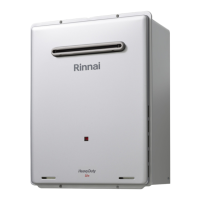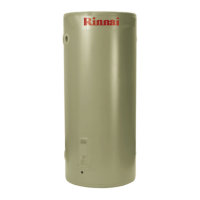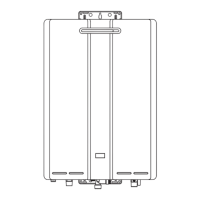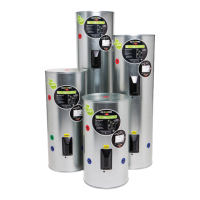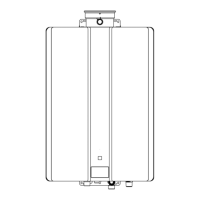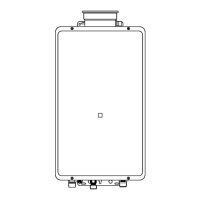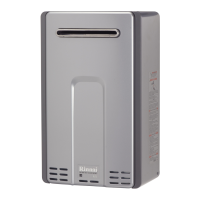KBD Series Manual 47
□ The water heater is not subject to corrosive
compounds in the air.
□ The water supply does not contain chemicals or
exceed total hardness that will damage the heat
exchanger.
□ Clearances from the water heater unit are met.
□ Clearances from the vent terminaon / air intake
are met.
□ For indoor models, ensure you have used the
correct venng products for the model installed
and that you have completely followed the
venng manufacturer’s installaon instrucons
and these installaon instrucons.
□ For indoor models, verify that the vent system
does not exceed the maximum length for the
number of elbows used.
□ For indoor models, verify that SW 1 in DIPSW 1
has been adjusted for vent length if necessary.
Refer to the secon on Maximum Vent Length.
□ Purge the water line of all debris and air by
closing the hot isolaon valve and opening the
cold isolaon valve and its drain.
Use a bucket or hose
if necessary.
□ Ensure that hot and cold water lines are not
crossed to the unit and are leak free.
□ A manual gas control valve has been placed in the
gas line to the water heater.
□ Ensure that a pressure relief valve is installed with
a rang that exceeds the BTU input of the water
heater model. Refer to the rang plate on the
side of the water heater for BTU input.
□ Clean the inlet water lter by closing the cold and
hot water inlet isolaon (shut-o) valves. Put a
bucket under the lter at the boom of the water
heater to catch any water that is contained inside
the unit. Unscrew the water lter. Rinse the
lter to remove any debris. Install the lter and
open the isolaon valves.
□ Check the gas lines and connecons for leaks.
□ Conrm that the gas inlet pressure is within
limits.
□ Conrm that the water heater is rated for the gas
type supplied.
□ Conrm that the electricity is supplied from a 120
VAC, 60 Hz power source, is in a properly
grounded circuit, and turned on.
□ Verify the temperature controller is funconing
properly.
□ Verify that SW 2 and SW 3 in DIPSW 1 is set
correctly for your altude.
□ Verify the system is funconing correctly by
connecng your manometer to the gas pressure
test port on the water heater. Operate all gas
appliances in the home or facility at high re. The
inlet gas pressure at the water heater must not
drop below that listed on the rang plate.
□ introduce toxic chemicals such as those
used for boiler water treatment to the potable
water used for space heang.
□ If the water heater is not needed for immediate
use, then drain the water from the heat
exchanger.
□ Install the front panel.
□ Explain to the customer the importance of not
blocking the vent terminaon or air intake.
□ Explain to the customer the operaon of the
water heater, safety guidelines, maintenance, and
warranty.
□ The installaon must conform with local codes or,
in the absence of local codes, with the Naonal
Fuel Gas Code, ANSI Z223.1/NFPA 54, or the
Natural Gas and Propane Installaon Code, CSA
B149.1. If installed in a manufactured home, the
installaon must conform with the Manufactured
Home Construcon and Safety Standard, Title 24
CFR, Part 3280 and/or CAN/SCA Z240 MH Series,
Mobile Homes.
□ Inform the consumer if the isolaon valves are
not installed or if a water soening system is not
installed.
□
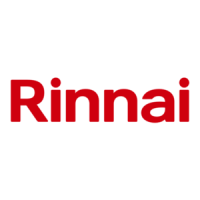
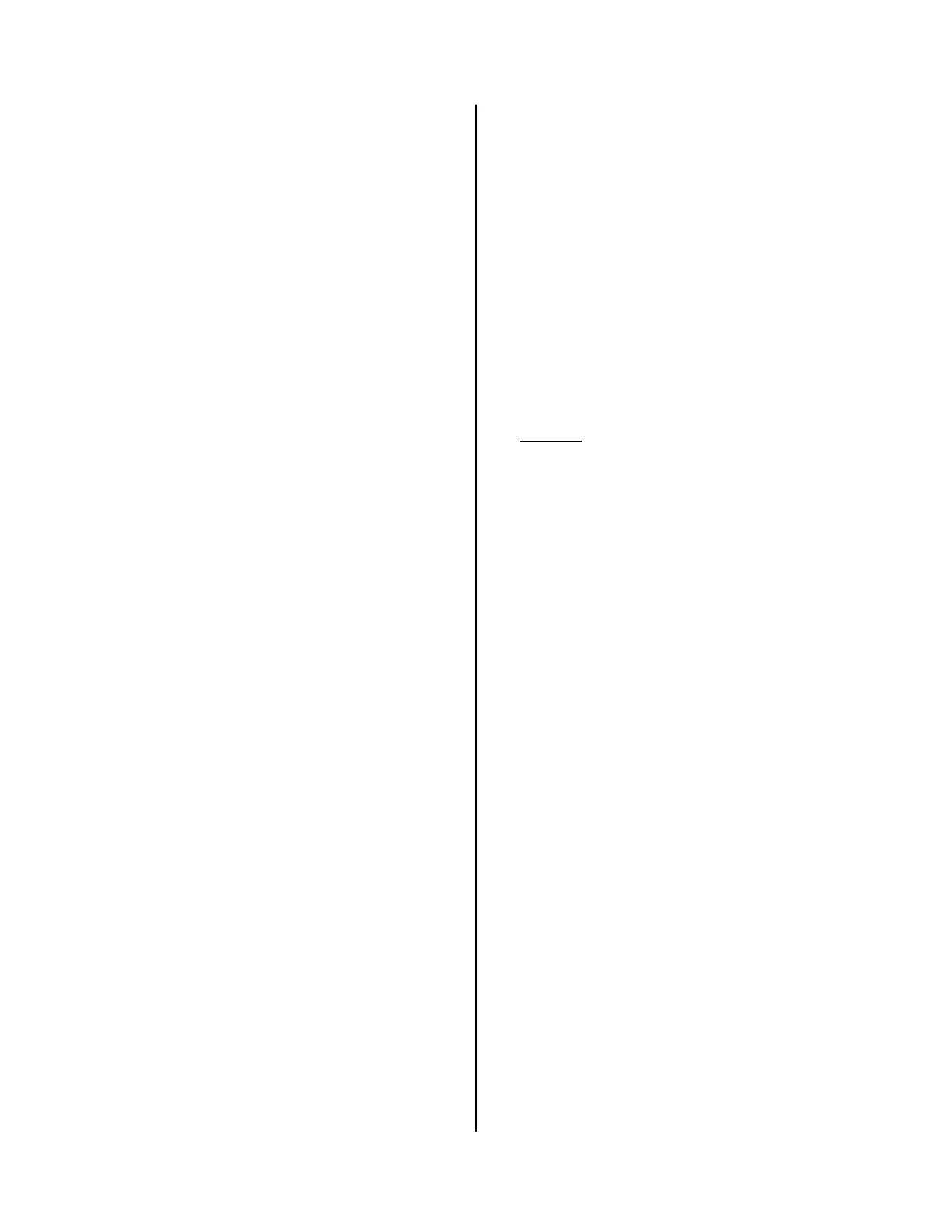